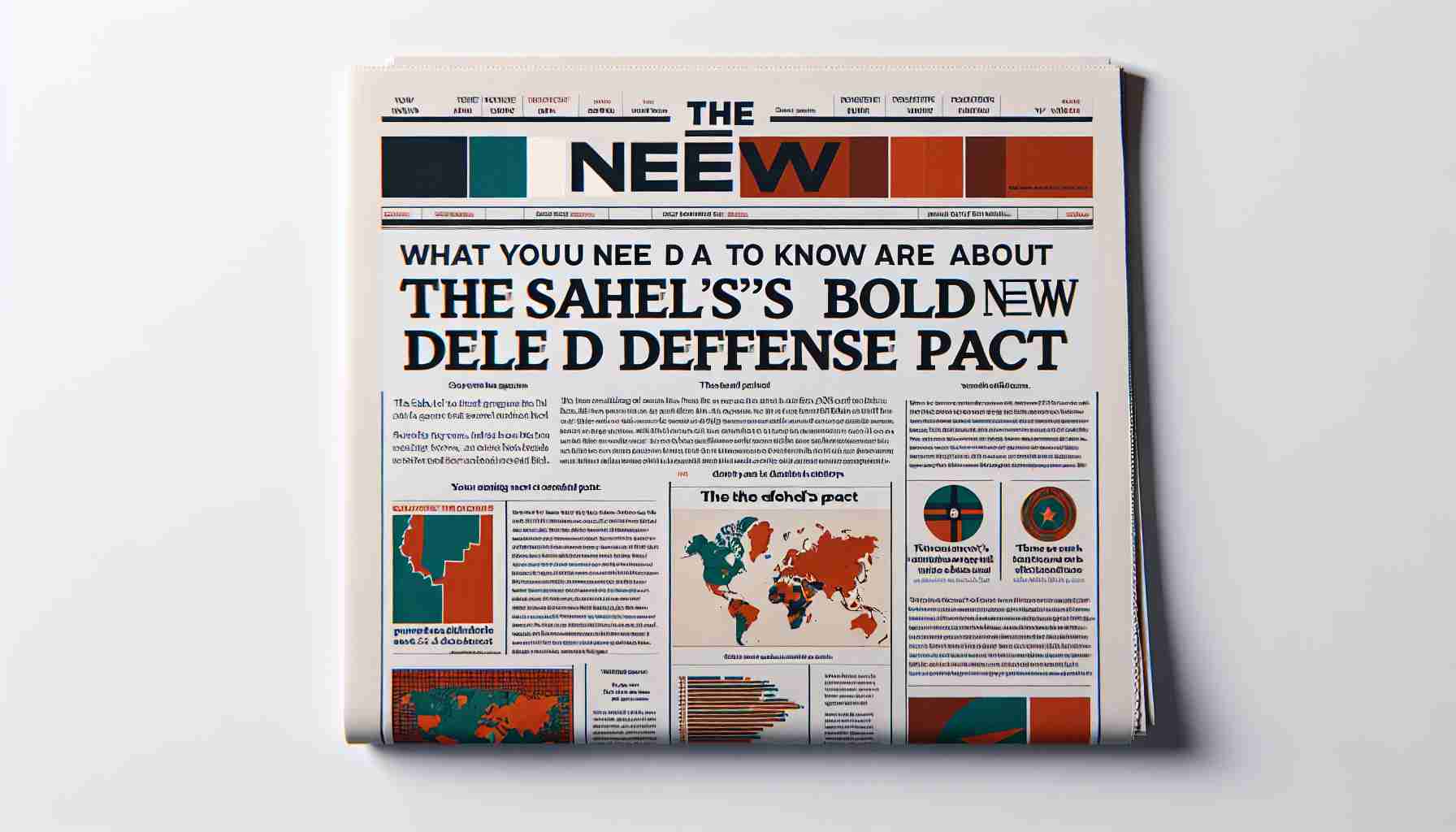- The Alianza de Estados del Sahel (AES) is a newly formed alliance among Mali, Burkina Faso, and Niger, aimed at enhanced defense cooperation.
- This partnership emerges after these nations withdrew from the Economic Community of West African States (ECOWAS), asserting their independence and sovereignty.
- ECOWAS has recognized their withdrawal but remains open to dialogue, indicating a continued commitment to regional solidarity.
- The military juntas accuse ECOWAS of being influenced by external powers, viewing it as a threat to national interests.
- The sanctions imposed by ECOWAS are a response to this withdrawal, but they were lifted shortly after, allowing for potential collaboration.
- The AES represents a strategic shift in the region, possibly redefining stability in the Sahel.
In a powerful move signaling a shift in power dynamics, the military governments of Mali, Burkina Faso, and Niger have formed a new alliance—the Alianza de Estados del Sahel (AES). This pact, crafted amidst rising tensions, aims to bolster defense cooperation and ensure mutual support among these nations. One year after their dramatic exit from the Economic Community of West African States (ECOWAS), the announcement is both a declaration of independence and a quest for sovereignty.
As ECOWAS officially recognizes this withdrawal, it affirms its doors remain open for dialogue, reflecting a commitment to regional solidarity. Yet, the tensions are palpable. The military juntas accused ECOWAS of being unduly influenced by foreign powers, claiming it has strayed from its founding principles and turned into a threat to member states.
In response to their withdrawal, ECOWAS levied economic sanctions, particularly targeting the recruitment of citizens from these nations into its institutions. However, these measures were lifted just a month later, paving the way for more collaborative dialogues. Now, the AES stands as a bold statement from these leaders, signaling their determination to reclaim sovereignty and pursue profound changes for their peoples.
As the political landscape continues to evolve, this new alliance could redefine stability in the Sahel region. The key takeaway is clear: with the AES, Mali, Burkina Faso, and Niger are stepping into a new era of self-determination, challenging existing regional frameworks and advocating for their own interests. This unfolding story will be crucial to watch as it impacts millions and the broader geopolitical landscape.
New Alliance in the Sahel: What It Means for Regional Stability
Overview of the Alianza de Estados del Sahel (AES)
In a significant geopolitical development, the military governments of Mali, Burkina Faso, and Niger have established the Alianza de Estados del Sahel (AES). This alliance marks a pivotal moment as these nations strive for greater autonomy amidst external pressures and aspirations for self-governance. The AES is set against a backdrop of tensions with the Economic Community of West African States (ECOWAS), which they accuse of foreign influence.
Key Features of the AES
1. Mutual Defense Cooperation: The AES aims to enhance defense collaboration among its member states, creating a unified front against both internal and external threats.
2. Economic Independence: The alliance emphasizes economic self-sufficiency, moving away from reliance on ECOWAS and foreign powers.
3. Political Sovereignty: Through this pact, the leaders of Mali, Burkina Faso, and Niger are signaling a strong desire for political autonomy and a reassertion of their national interests.
Relevant Trends and Insights
– Security Challenges: The Sahel region continues to face severe security threats, including terrorism and organized crime. The AES could facilitate a more coordinated response to these challenges.
– Geopolitical Shifts: The formation of AES reflects a broader trend in West Africa, where military-led governments are diversifying alliances and reducing dependence on traditional blocs like ECOWAS.
– Public Perception: Support for the AES within the member countries is mixed; some view it as a necessary step towards stability, while others fear isolation and reduced cooperation with international bodies.
Pros and Cons of the AES
Pros:
– Enhanced security through collaboration among member states.
– Potential for greater economic autonomy and self-sufficiency.
– Strengthened national pride and political sovereignty.
Cons:
– Risk of isolation from international cooperation and support.
– Possible deterioration of relationships with global powers and NGOs.
– Internal dissent and lack of unified public support could undermine stability.
Important Questions Regarding AES
1. What are the potential impacts of AES on ECOWAS?
The AES may challenge the authority and influence of ECOWAS, possibly leading to further divisions in the region. As these countries pursue more independent policies, ECOWAS might need to reassess its strategies to engage positively with member states.
2. How will the AES address security issues in the Sahel?
By pooling resources and intelligence, the AES could provide a more cohesive approach to combating terrorism and organized crime, which have proliferated in the Sahel. However, the effectiveness of this collaboration will depend on the commitment and unity of the member states.
3. What might the future hold for the relationship between AES member states and foreign powers?
The AES’s formation could alter the dynamics of international relations in the region, as these countries seek to establish partnerships based on mutual respect and non-interference, potentially leading to a revamped approach of international engagement.
Conclusion
The establishment of the Alianza de Estados del Sahel represents a bold step towards reclaiming sovereignty and a redefinition of regional dynamics in West Africa. As the situation evolves, the implications of this alliance will be crucial not only for the member states but also for the broader geopolitical landscape.
For further insights and information, visit BBC News or Al Jazeera.
